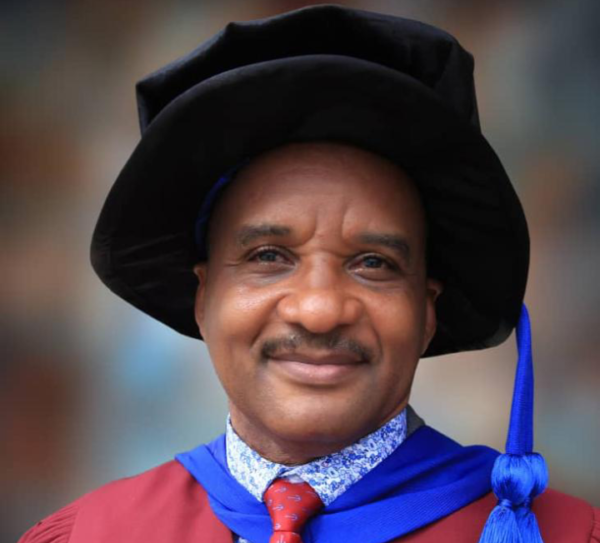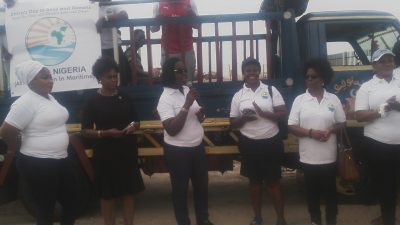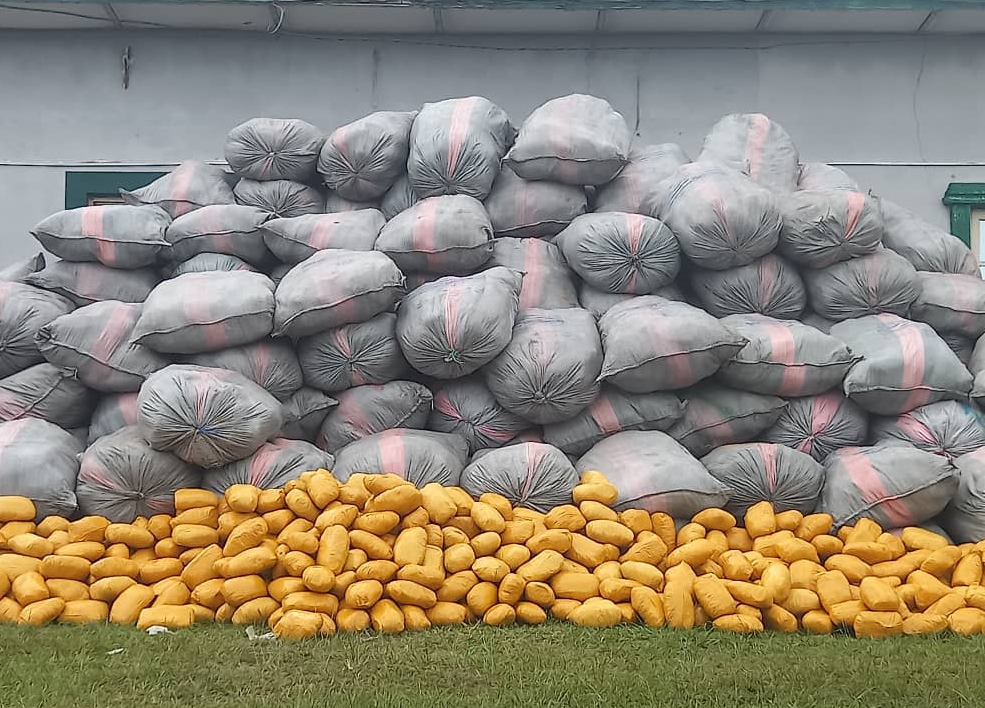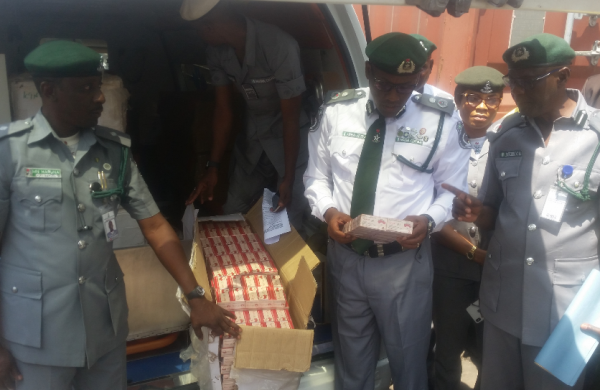FG To Convert Sealink Vessels Into National Carrier
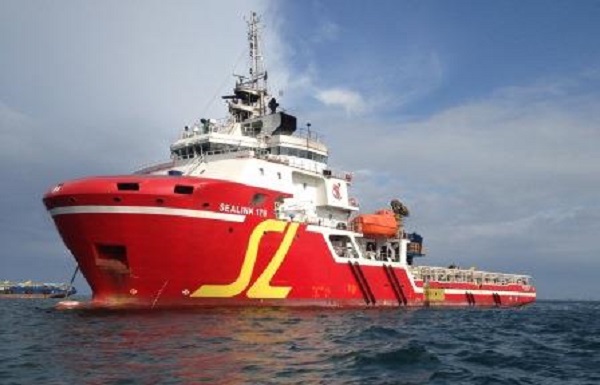 · Presidency directs NNPC to prioritize 4 Nigerian vessels
· Presidency directs NNPC to prioritize 4 Nigerian vessels
· N256bn budget is insignificant for Transport sector – Otunba Folarin
By Kenneth Jukpor
In a bid to meet the growing competition under the African Continental Free Trade Area (AfCFTA), the Federal Government of Nigeria has initiated plans to convert four vessels acquired under the Sealink Project into national carriers.
This move was engineered by the Nigerian Fleet Implementation Committee chaired by the Executive Secretary of Nigerian Shippers’ Council (NSC), Mr. Hassan Bello.
As the nation with the highest stake in the regional investment, the Nigerian Fleet Implementation Committee convinced the Presidency to utilize the maritime assets to dissipate the nation’s shipping woes in terms of scarcity of ships.
Sealink Promotional Company Ltd (SPCL) is a Public Private Partnership (PPP) arrangement established for the purpose of promoting the development of a regional sealink company that would be private sector driven.
The role of the Sealink Promotional Company Ltd (SPCL) is essentially to raise funding of US$1.5 million from donors, development partners and private sector stakeholders for the promotional activities of the proposed regional sealink project.
The regional initiative was floated to address the high cost of cross-border trade and excessive transit time in West and Central Africa, resulting from lack of adequate transportation infrastructure among states in the sub-region.
Although Nigeria has been in the forefront of the initiative to eliminate barriers to regional integration, improve trade flows and free movement of goods, people and services; sources have revealed to our correspondent that the Presidency has endorsed a change that puts Nigeria first.
Several meetings with the Presidency via the Vice President, Prof. Yemi Osinbajo, has seen the Nigerian Fleet Implementation Committee realize its goal on crude affreightment as the Presidency has instructed the Nigerian National Petroleum Corporation (NNPC) to avail the new vessels crude lifting opportunities.
There are also concerns about the managerial style to be utilized for the new crude carriers and other container vessels as stakeholders have proposed private sector management while the government is open to Public-Private Partnerships (PPP).
Although efforts to reach the Chairperson of the Sealink Implementation Committee (SIC) Mrs. Dabney Shall-Holma were futile until presstime as our correspondent sought to get the vessel types and other assets that could be available from the Sealink Project.
With the support of the Nigerian Export-Import Bank, NEXIM Bank, as the key project promoter, the Sealink Implementation Committee is strategizing for both financial and operational success. Some of the financial partners that have pledged support for the Project include; African Export-Import Bank (Afreximbank) and the EXIM Bank of China.
The Sealink is working with Nigerian Ports Authority (NPA), and has secured approval to use the Ikorodu Lighter Terminal to serve coastal trade. Also, the National Inland Waterways Authority (NIWA) has given approval for the Sealink to use the country’s inland waterways. Work is now underway with the Nigerian Navy to survey the rivers and publish a safe navigational chart that would be internationally-recognized for the operations of Sealink. The survey will advise on where to sweep or dredge the rivers.
According to the promoters, Sealink plans to offer bespoke services to exporters, based on their cargo types and sizes, as well as customized deployment of its vessels and barges based on the depths of the rivers.
To handle bulk cargoes, Sealink has brought in a private port into the consortium, namely the Burutu Port, near Warri, Delta State. Burutu Port, which is the oldest port in Nigeria, was built by the British in the pre-colonial era. It has two warehouses and capacity to handle a million tons of bulk cargoes per day.
Sealink plans to reduce the cost of transportation of cargoes by up to 70 per cent. To achieve this, the company is currently collating information on exporters, their cargoes, volumes, trade frequency, evacuation points and destination ports. Sealink is also building its fleet in accordance with the cargo types, including bulk cargoes, container cargoes and perishable consignments. By smartly deploying its vessels and barges according to the profiles, Sealink aims to optimize its various capacities to bring down the cost of cargo transportation.
The critical off-takers the company has identified are miners of solid minerals. By providing logistical services to back mining of solid minerals in Nigeria, Sealink aims to establish the country on the global map of mining jurisdictions and help deliver on the export diversification aspirations of the government.
So far, the Federation of West African Chambers of Commerce and Industry (FEWACCI), the umbrella body of the chambers of commerce and industry in West Africa, has pledged to support the efforts at establishing the dedicated regional shipping line to boost intra-regional trade, even as the ECOWAS (Economic Community of West African States) Commission has adopted the Sealink as one of the seven Priority Projects under its development programme.
Transimex, one of the largest logistics company in Central Africa, also joined the efforts to promote the Sealink. This expanded the outlook of the Project to cover both West Africa and Central Africa. But with the advent of the AfCFTA, which will take off operationally this year, 2021, Sealink is now Pan-Africa in outlook. As disclosed by its promoters during a recent workshop, the Sealink has received expressions of interest to invest from the economic powerhouses of Africa, including Egypt, Tunisia, Morocco and South Africa, in addition to others from the two sub-regions.
Meanwhile, one of Nigeria’s foremost ship-owners, Engr. Greg Utomwen Ogbeifun, who is also a member of the national fleet implementation committee, has slated a one-day maritime symposium on “the Establishment of a Nigerian Global Trading Fleet” to hold virtually on Friday 5th February 2021.
Ogbeifun has encouraged maritime stakeholders to register and participate in the summit, noting that it would feature discussions with regards to the Establishment of a Nigerian Global Trading Fleet.
In another development, transport experts have bemoaned the budgetary provision of N256 billion for transportation as non-reflective of the sector’s status and its infrastructural and security challenges in the country.
Speaking with MMS Plus last week, the Chairman of Nigerian Ports Consultative Council (PCC) Otunba Kunle Folarin said that the N256 billion allocated to the sector doesn’t show the government’s commitment to address the massive infrastructure gaps across the sector.
His words: “When you look at the entire budget, you would realize that it remains speculative in the sense that more than 60% of the funding is either in deficit or goes to service debts. We are looking at only about 40% of the budget for performance. So, we must first look at the tools and the revenue to finance the pronouncement and the appropriation. For the Ministry of Transportation, the N250 billion allocation further breakdown for maritime transport does not suggest the capital nature of that domain. We’re looking at infrastructure for the sector, security, manpower development and international compliance of our obligations for the sector.”
Noting that security challenges have heightened in the Gulf of Guinea (GoG) for which Nigeria has a coastline of over 900 nautical miles for surveillance, he lamented that the budgetary provision wouldn’t support the acquisition of platforms for surveillance.
“Let’s not forget that the effects of piracy in the Gulf of Guinea is already manifesting in international shipping as foreign counterparts are already imposing surcharges on Nigerian bound cargoes. So, if there is no infrastructure you can’t challenge the menace and as it keeps growing the International Maritime Bureau (IMB) continues to report it and the consequence would be more charges,” Otunba stressed.
The maritime expert also added that lack of proper funding for the transport sector would deprive maritime transport from the peace that is a prerequisite for hub status in the West and Central African region.
According to him, “the opportunities to service landlocked countries using Nigerian seaports are also diminished because of the challenges of security on our territorial waters and transport infrastructure challenges. We have no deep seaports and we all know that the comparative advantage of volume is critical to be competitive in the region.”
He stressed that it was unfortunate that Nigeria is the only country without a seaport on the Atlantic Ocean in West and Central Africa despite having a geographical advantage.
“Bigger ships cannot come to Nigeria because of the advantage of volume available at neighbouring countries. Therefore, Nigerian ports will not be competitive. So, we need to provide the infrastructure that will give us the opportunity to compete effectively and get the benefit of revenue generation when ships come to our ports,” Otunba said.
He advised the government to provide a supplementary budget for transportation given the massive gaps yet to be addressed the present budget.
“We all agree that the budget cannot cover all aspects of the challenges in the transport sector, but the principal ones that go on to provide the opportunities for economic growth, employment and revenue generation, should be prioritized. Such principal and critical elements should be on the front-burner in the budget,” he added.



